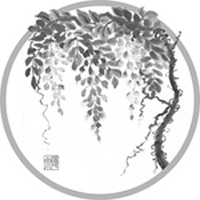The Calligraphers Daughter
The Calligraphers Daughter
A NOVEL
Eugenia Kim
Henry Holt and Company
New York

Henry Holt and Company, LLC
Publishers since 1866
175 Fifth Avenue
New York, New York 10010
[http://www.henryholt.com] www.henryholt.com
Henry Holt and  are registered trademarks of Henry Holt and Company, LLC.
are registered trademarks of Henry Holt and Company, LLC.
Copyright 2009 by Eugenia Kim
All rights reserved.
The poem A Dream, which is quoted on pages 185 and 223, is from Among the Flowering Reeds: Classic Korean Poems in Chinese , translated by Kim Jong-Gil, White Pine Press (Whitepine.org), 2003.
Distributed in Canada by H. B. Fenn and Company Ltd.
Library of Congress Cataloging-in-Publication Data
Kim, Eugenia.
The calligraphers daughter : a novel / Eugenia Kim. 1st ed.
p. cm.
ISBN-13: 978-0-8050-8912-7
ISBN-10: 0-8050-8912-8
1. KoreaFiction. I. Title.
PS3611.I453C35 2009
813.6dc22
2008046306
Henry Holt books are available for special promotions and premiums.
For details contact: Director, Special Markets.
First Edition 2009
Designed by Meryl Sussman Levavi
Painted illustrations by Alice Hahn Hyegyung Kim
Printed in the United States of America
10 9 8 7 6 5 4 3 2 1
For my mother and father,
whose lives inspired this novel,
and for my family
The Calligraphers Daughter
PART I
Gaeseong
The Daughter of the Woman from Nah-jin
SUMMER AUTUMN 1915
I LEARNED I HAD NO NAME ON THE SAME DAY I LEARNED FEAR. UNTIL that day, I had answered to Baby, Daughter or Child, so for the first five years of my life hadnt known I ought to have a name. Nor did I know that those years had seen more than fifty thousand of my Korean countrymen arrested and hundreds more murdered. My father, frowning as he did when he spoke of the Japanese, said we were merely fodder for a gluttonous assimilation.
The servants called me Ahsee , Miss, and outside of the family I was politely referred to as my mothers daughter. To address an adult by name was considered unspeakably rude. Instead, one was called by ones family relational position, or profession. My father was the literati-scholar-artist, the calligrapher Han, much respected, and my mother was the scholars wife. And because my mother wasnt native to Gaeseong, she was also properly called the woman from Nah-jin, a wintry town on the far northeast border near Manchuria. Thus, if a church lady said, That one, the daughter of the woman from Nah-jin, I knew I was in trouble again.
I wasnt a perfect daughter. Our estate overflowed with places to crawl, creatures to catch and mysteries to explore, and the clean outside air, whether icy, steamy or sublime, made me restive and itching with curiosity. Mother tried to discipline me, to mold my raw traits into behavior befitting yangban , aristocrats. An only child, I was expected to uphold a long tradition of upper-class propriety. There were many rulesall seemingly created to still my feet, busy my hands and quiet my tongue. Only much later did I understand that the sweeping change of those years demanded the stringent practice of our rituals and traditions; to venerate their meaning, yes, but also to preserve their existence simply by practicing them.
I couldnt consistently abide by the rules, though, and often found myself wandering into the forbidden rooms of my father. Too many fascinating things happened on his side of the house to wait for permission to go there! But punishment had been swift the time Myunghee, my nanny, had caught me eavesdropping outside his sitting room. Shed switched the back of my thighs with a stout branch and shut me in my room. I cried until I was exhausted from crying, and my mother came and put cool hands on my messy cheeks and cold towels on my burning legs. I now know that shed sat in the next room listening to me cry, as she worked a hand spindle, ruining the thread with her tears. Many years later, my mother told me that the cruelty of that whipping had revealed Myunghees true character, and she wished she had dismissed her then, given all that came to pass later.
I didnt often cry that dramatically. Even at the age of five, I worked especially hard to be stoic when Myunghee pinched my inner arms where the bruises wouldnt be easily discovered. It was as if we were in constant battle over some unnamed thing, and the only ammunition I had was to pretend that the hurts she inflicted didnt matter. Hired when I was born, Myunghee was supposed to be both nanny and companion. Her round face had skin as pale and smooth as rice flour, her eyes were languid with what was mistaken for calm, and her narrow mouth was as sharp as the words it uttered. When we were apart from the other servants or out of sight of my mother, Myunghee shooed me away, telling me to find my own amusement. So I spied on her as she meandered through our house. She studied her moon face reflected in shiny spoons, counted silver chopsticks, fondled porcelain bowls and caressed fine fabrics taken from linen chests. At first I thought she was cleaning, but my mother and I cleaned and dusted with Kira, the water girl. Perhaps she meant to launder the linens, but Kira did the laundry and was also teaching me how to wash clothes. Maybe the bowls needed polishing, but Cook was very clear about her responsibilities and would never have asked for help. As I spied on Myunghee, I wondered about her strangeness and resented that she refused to play with me.
My mothers visit had brought me great relief, but my stinging thighs sparked a long-smoldering defiance and I swore to remain alert for the chance to visit my fathers side of the house again.
And so on this day, when six elders and their wives came to visit, I found my chance after the guests had settled inthe women in Mothers sitting room and the men with Father. I crept down Fathers hallway, nearing the big folding screen displayed outside his door, and heard murmurings about resisting the Japanese. The folding screens panels were wide enough for me to slide into a triangle behind an accordion bend. The dark hiding place cooled the guilty disobedience that was making me hot and sweaty, a completely unacceptable state for a proper young lady. I breathed deeply of the dust and dark to calm myself, and cradled my body, trying to squeeze it smaller. Pipe smoke filtered through the door, papers shuffled, and I wondered which voice in the mens dialogue belonged to whom. The papers must have been my fathers collection of the Daehan Maeil News I knew hed saved over the past several months. This sole uncensored newspaper, distributed nationwide for almost a full year, had recently been shut down. The men discussed the forced closure of the newspaper, Japans alliance with Germany, its successes in China and unceasing new ordinances that promoted and legalized racial discrimination. Naturally I understood none of this, but the mens talk was animated, tense and punctuated repeatedly with unfamiliar words.
I slipped from behind the screen, tiptoed down the hall and, once safely on our side of the house, ran to Mothers room, eager to ask what some of those words meant: Europe, war, torture, conscript, dissident and bleakfuture.
The mens wives sat around the open windows and door of my mothers sitting room, fanning themselves, patting their hair and fussing about the humidity. I spun to retreat, realizing too late that Mother would be in the kitchen supervising refreshments. A woman with painted curved eyebrows and an arrow-sharp chin called Yah! and beckoned me closer.

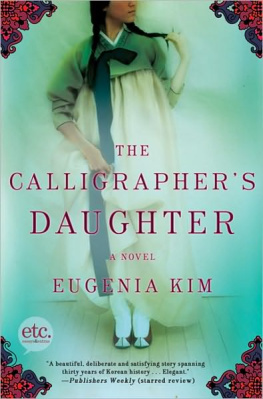
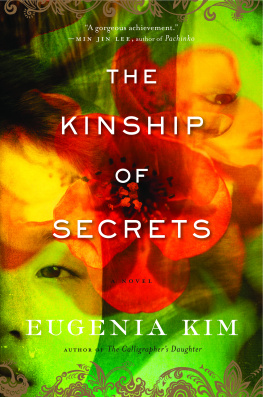
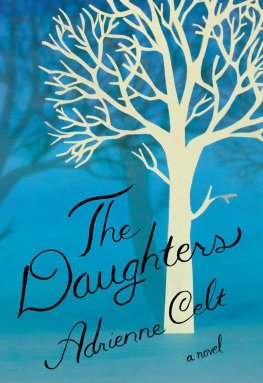

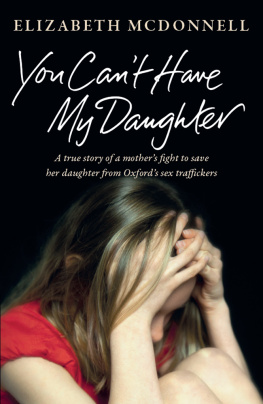
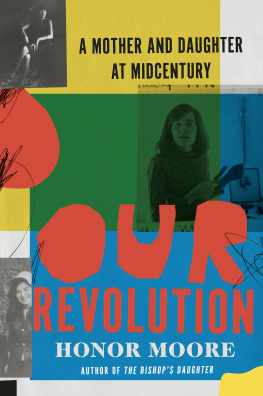
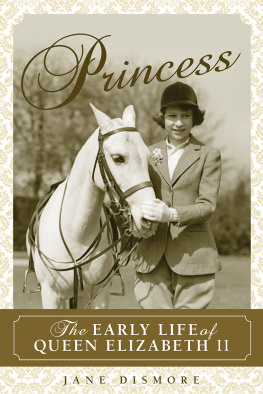
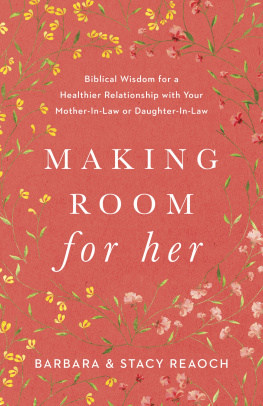
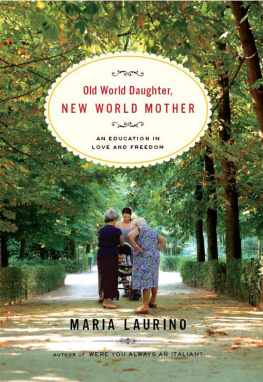
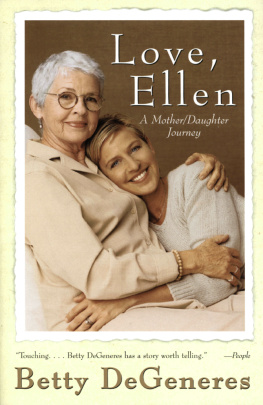

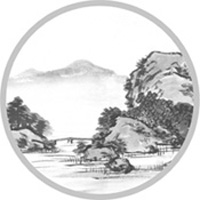

 are registered trademarks of Henry Holt and Company, LLC.
are registered trademarks of Henry Holt and Company, LLC.